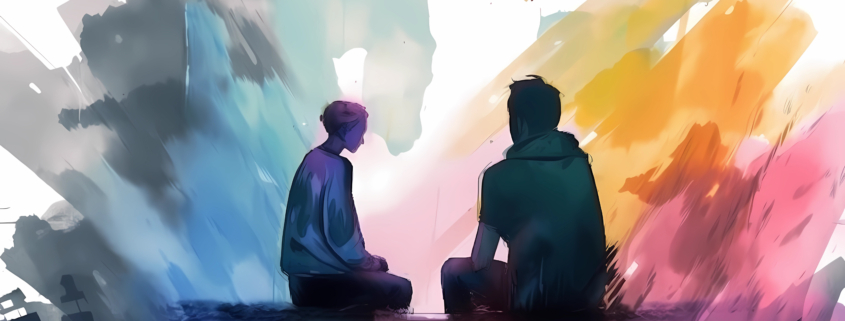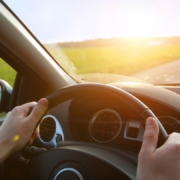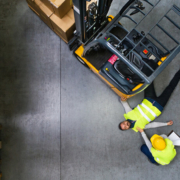The Psychological Impact of Car Accidents on Victims and their Families
Car accidents can be traumatic for individuals of all ages. But for children, the emotional toll often far outweighs the physical injuries sustained. Unlike adults, kids lack the coping skills and brain development to process trauma in healthy ways.
Left unresolved, the psychological effects of a serious collision can plague children for years in the form of anxiety, behavioral issues, academic struggles, and much more. Understanding the profound emotional impact car crashes have on young passengers is key to overcoming accident trauma and securing the resources kids need to heal.
Common Psychological Effects on Children After Car Accidents
In the immediate aftermath of a collision, shock often numbs child passengers. But as the reality sets in, a range of psychological wounds typically emerge that require sensitive care and treatment:
- Anxiety – Generalized anxiety, phobias, separation anxiety, and panic attacks frequently develop after vehicle trauma. Kids experience ongoing fear and distress.
- Depression – Loss of interest in normal activities, chronic sadness, fatigue, and social withdrawal are hallmarks of depression following accidents.
- PTSD – Re-experiencing the crash through flashbacks, nightmares, and intrusive memories is a core symptom of post-traumatic stress disorder. Feelings of life-threatening danger persist.
- Sleep Disturbances – Difficulty falling or staying asleep, trouble waking, and frequent nightmares often disrupt sleep as kids relive the accident when their conscious defenses are down.
- Regression – Young children may revert to earlier behaviors they have outgrown like bedwetting, tantrums or baby talk to manage fears stirred up by trauma.
- Behavior Changes – Increased irritability, aggression, difficulties at school, and defiance of authority figures can manifest as kids struggle to process their emotions.
- Accident Avoidance – Refusing to ride in cars, resisting driving practice, avoiding highways, and displaying fear at the sight of any vehicle can develop. Kids feeling out of control need to control their environment.
- Guilt – Kids may blame themselves for potentially causing distractions or contributing to other events they think could have caused the crash. They often dwell on “what-ifs” and struggle with misplaced responsibility.
- Concentration Problems – The complex memories, emotions, and heightened anxiety caused by trauma impact focus, comprehension, and academic performance.
Factors Making Children More Susceptible to Collision Trauma
The underdeveloped neurological, emotional, and communication abilities of kids leave them at greater risk for psychological trauma compared to adults after vehicle crashes:
- Immature Brain Coping – The brain regions that process trauma are still developing. Kids lack the capacity to effectively manage intense fear and stress.
- Minimal Life Experience – With limited exposure to serious adversity, children lack the understanding that hardship can be overcome and life returns to normal. A crash seems insurmountable.
- Fewer Coping Skills – Children have fewer psychological, emotional, and social skills to apply in managing trauma and severe distress compared to adults.
- Communication Challenges – Kids often struggle to properly verbalize and express their complex inner feelings stirred up by trauma, complicating emotional recovery.
- Active Imaginations – Children commonly transfer accident fears and memories into recurring nightmares. Their undeveloped cognition blurs the line between fantasy and reality.
- Family Reliance – Kids depend heavily on their parents for safety and stability. Seeing parents traumatized and family disruption magnifies their fears exponentially.
The psychological impact on each child also varies based on their age and stage of development when the accident occurred:
Psychological Effects of Car Accident Survivors by Age
- Preschoolers – Common regressive behaviors include bedwetting, baby talk, separation anxiety, and temper tantrums. Nightmares and re-enacting aspects of the crash through play are also common.
- School Age – Persistent anxiety may cause somatic symptoms like stomachaches or headaches. Social withdrawal, clinginess, feelings of guilt, and trouble concentrating often occur.
- Teens – Teens are more prone to risk-taking behaviors as a coping mechanism, like substance abuse, impulsiveness, or truancy. Outward anger and defiance may mask their internal struggles.
With sensitivity to their unique needs and vulnerabilities, children can fully recover from the mental health impacts of auto accident trauma.
Helping Children Overcome Emotional Trauma from a Car Accident
While physical injuries mend over weeks and months, the psychological wounds linger much longer without active intervention. Some strategies to help kids past car accident trauma include:
- Offer Reassurance About Safety – Provide consistent comforting messages that everyone is protected now that the frightening experience has passed. Help counteract ongoing fears of imagined threats.
- Encourage Expression Through Play and Art – Allow young children to work through confusion, fear, and guilt by re-enacting aspects of the crash during play or through drawings. Creative outlets give feelings an outlet kids can control.
- Listen Without Judgement – Let kids openly discuss memories, dreams, or changes they’re experiencing without judgment. Ask gentle questions to understand their inner state without pressing for details that could re-traumatize them.
- Practice Patience and Support – Recovery takes time and regression or setbacks are normal. Consistently offer comfort, spend extra time together, and accommodate accident-related anxieties without frustration.
- Maintain Routines – Sticking to regular schedules provides stability and a sense of normalcy that is reassuring. But also adjust expectations like schoolwork to accommodate needed recovery.
- Explore Counseling and Support Groups – Therapy from professionals trained in childhood trauma can help kids healthily process experiences rather than bottling them up. Group support fosters comfort knowing others share their struggles.
- Teach Healthy Coping Strategies – Help kids adopt tactics like deep breathing, journaling, drawing, exercise, and positive self-talk to manage anxiety and accident flashbacks in productive ways.
With compassion, patience, and support from loved ones and professionals, kids can overcome emotional wounds just as their physical injuries heal. The difference is psychological recovery often takes much longer without active efforts.
Pursuing Financial Compensation for Your Child’s Emotional Trauma
While no amount of money can make up for a traumatic car accident, seeking financial compensation through a claim or lawsuit allows recovery resources kids require. An attorney can help in several ways:
- Gather Medical Records – Obtain reports from psychologists, counselors, and doctors documenting your child’s diagnosis and recommended treatment. These substantiate long-term impacts.
- Assess Future Costs – Quantify projected expenses for therapy, counseling, psychiatric care, and other needs to address ongoing mental health damages.
- Account for Academic Impacts – Factor in added costs like tutoring, special education services, and repeating grades failed due to trauma-induced learning deficits.
- Maximize Non-Economic Damages – Ensure settlement adequately accounts for pain and suffering, loss of enjoyment of life, and other intangible accident harms.
- Hold Negligent Parties Accountable – Pursuing maximum compensation sends a message that negligent actions carry consequences, helping prevent similar crashes.
- Allow You to Focus on Your Child – Managing legal, insurance, and media burdens lets you devote yourself fully to your child’s recovery.
Contact Our Experienced Alabama Car Accident Lawyers
The attorneys at Burge and Burge have a proven track record helping injured children and families pursue fair compensation in auto accident claims. We understand the complex psychological impacts vehicle crashes have on kids and make it our priority to secure damages so they can heal. We welcome the opportunity to help your family move forward. Please contact us today for a free consultation to assess your legal options.










Leave a Reply
Want to join the discussion?Feel free to contribute!